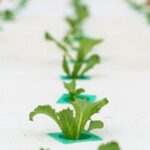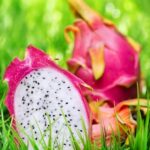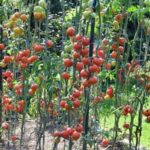Is weed and feed safe for vegetable gardens? Maintaining a healthy vegetable garden is crucial for producing an abundant harvest, and keeping weeds at bay is essential.
Weed and feed products are popular for controlling weeds and fertilizing lawns, but are they safe for vegetable gardens? In this article, we will explore the potential risks of using weed and feed in vegetable gardens, safety precautions to consider, environmental impact, organic alternatives, and the benefits of using weed and feed specifically for vegetable gardens.
Weed and feed products are designed to eliminate weeds while providing essential nutrients to the lawn. These products typically contain herbicides to kill weeds and fertilizers to encourage healthy grass growth. However, when used near vegetable gardens, there is a concern about the chemicals in weed and feed potentially harming the vegetables as well as affecting the soil and surrounding plants.
It’s important to understand the potential risks involved in using weed and feed near vegetable gardens. The chemicals in these products can leach into the soil or runoff into nearby water sources, causing harm to wildlife and compromising soil quality. Additionally, they may have adverse effects on the growth of vegetables if not used with caution. It’s crucial to take safety precautions when considering using weed and feed in close proximity to your vegetable garden.
What Is Weed and Feed?
Weed and feed products are commonly used in lawn care to control weeds and fertilize the grass. These products typically contain herbicides to eliminate the weeds and slow-release nitrogen to promote healthy grass growth. While weed and feed can be effective for maintaining a lush, green lawn, many gardeners wonder if weed and feed is safe for their vegetable gardens.
When considering the use of weed and feed near vegetable gardens, it is important to understand the potential risks involved. The chemicals in weed and feed products may harm vegetables if they come into contact with them. Additionally, these chemicals can also have an impact on the soil and surrounding plants, affecting the overall health of the garden.
In order to safely use weed and feed near vegetable gardens, it is crucial to take certain precautions. One important tip is to carefully read and follow the instructions on the product label.
It is also advisable to apply weed and feed on a calm day when there is no wind to ensure that it does not drift onto your vegetable garden. For those who want to avoid using traditional weed and feed products near their vegetable gardens, there are alternative options available that are specifically designed for use in edible gardens.
Potential Risks to Vegetable Gardens
Weed and feed products are commonly used to control weeds and fertilize lawns, but many people wonder: is weed and feed safe for vegetable gardens? It is essential to consider the potential risks of using weed and feed near vegetable gardens to ensure the health and safety of your plants.
Chemicals in standard weed and feed products can be harmful to vegetables, as they may contain herbicides that can damage or even kill your crops. Additionally, these chemicals can also have a negative impact on the soil, affecting its nutrient levels and overall health. Surrounding plants may also be at risk if exposed to the chemicals in weed and feed.
To safely use weed and feed near vegetable gardens, it is crucial to take some precautions. Here are some tips for minimizing the risks associated with using weed and feed products in close proximity to your vegetables:
- Read the labels of weed and feed products carefully to identify any potential risks or harmful chemicals
- Keep a safe distance between the treated area and your vegetable garden to prevent chemical runoff
- Consider using physical methods such as hand-weeding or mulching as an alternative to chemical weed control
For those who prefer a more natural approach, there are alternative options available for maintaining a healthy vegetable garden without using conventional weed and feed products. Considering these potential risks can help you make an informed decision about whether or not to use weed and feed near your vegetable garden.
Safety Precautions for Vegetable Gardens
When it comes to using weed and feed products in or near vegetable gardens, safety should always be a top priority. While these products can be effective in controlling weeds and fertilizing lawns, it is important to take extra precautions to ensure that they do not harm the vegetables or the surrounding soil. Here are some safety precautions to keep in mind when using weed and feed in vegetable gardens.
Tips for Safely Using Weed and Feed Near Vegetable Gardens
Before applying any weed and feed products near your vegetable garden, carefully read and follow the instructions on the product label. Make sure to choose a product specifically designed for use around edible plants and follow the recommended application rates.
It is also crucial to consider the timing of the application. Avoid using weed and feed on windy days to prevent drift onto your vegetables. It is best to apply these products when there is no rain in the forecast for at least 24 hours, as rain can wash the chemicals into your vegetable garden.
Alternative Weed and Feed Options for Vegetable Gardens
If you have concerns about using traditional weed and feed products near your vegetable garden, consider using organic alternatives. There are many safe and natural ways to control weeds without harming your vegetables, such as hand-pulling weeds, mulching, or using organic herbicides that are safe for use around edible plants.
Additionally, you can make your own homemade weed and feed options for organic gardening by combining natural ingredients like compost, vinegar, or corn gluten meal. These alternatives provide an effective way to control weeds while promoting a healthy environment for your vegetable garden.
By following these safety precautions and considering alternative options, you can effectively maintain a healthy vegetable garden while minimizing any potential risks associated with traditional weed and feed products. Always prioritize the safety of your vegetables and soil when using any lawn care products near your garden.
Environmental Impact
Weed and feed products have become popular among homeowners for their convenience in controlling weeds and fertilizing lawns. However, when it comes to using weed and feed in vegetable gardens, there are concerns about the potential environmental impact. It is important to understand how these products can affect the surrounding environment, including wildlife, water sources, and soil quality.
Impact on Wildlife
One of the primary concerns with using weed and feed in vegetable gardens is the potential harm to wildlife. The chemicals in these products can be toxic to birds, insects, and other animals that may come into contact with treated areas. This can disrupt the natural ecosystem in and around the garden, leading to a decline in biodiversity.
Water Sources
Another environmental consideration is the impact of weed and feed products on water sources. When these chemicals are applied to the lawn, they can leach into the soil and eventually make their way into nearby water sources such as rivers, lakes, and groundwater. This contamination can have detrimental effects on aquatic life and also pose risks to human health if consumed.
Soil Quality
Chemicals in weed and feed products have the potential to alter soil quality over time. Excessive use can lead to nutrient imbalances or build-up of harmful substances in the soil. This can affect not only the health of vegetable plants but also other plant species in the area.
Considering these potential environmental impacts, it is essential for gardeners to weigh the pros and cons before using weed and feed products in their vegetable gardens. There are safer alternatives that can effectively control weeds without posing risks to the environment or surrounding wildlife.
Organic Alternatives
Many gardeners are concerned about the potential risks of using weed and feed products in their vegetable gardens. While conventional weed and feed products may contain chemicals that can harm vegetables, there are safe and natural alternatives for controlling weeds in organic gardening.
One popular organic alternative is using mulch, such as wood chips or straw, to prevent weeds from growing in vegetable gardens. Mulch not only suppresses weed growth but also helps retain moisture in the soil, reducing the need for excessive watering.
Another organic alternative is hand weeding, which involves manually removing weeds from the garden beds. This method is labor-intensive but highly effective, especially for smaller vegetable gardens. It allows gardeners to target individual weeds without using any chemical herbicides that could potentially harm vegetables. Additionally, regular cultivation with a hoe or cultivator can disrupt weed growth and keep them from taking over the garden.
For those who prefer homemade solutions, creating a natural weed and feed mixture is possible using household ingredients such as vinegar and salt. This DIY option allows gardeners to control weeds without introducing harmful chemicals to their vegetable gardens. However, it’s important to note that even organic or homemade weed and feed options should be used with caution near edible crops to avoid any potential negative effects on the plants.
| Organic Weed Control | Effectiveness |
|---|---|
| Mulch | Highly effective at suppressing weed growth and retaining moisture |
| Hand weeding | Labor-intensive but targeted method for removing weeds without chemicals |
| Natural DIY mixture | Potentially safe alternative made with household ingredients like vinegar |
Benefits of Weed and Feed for Vegetable Gardens
Using weed and feed products in your vegetable garden can have several benefits, as long as they are used properly. Here are some ways that weed and feed can be beneficial for vegetable gardens:
- Effective weed control: Weed and feed products are designed to not only fertilize the lawn but also to control weeds. When used properly, they can help keep your vegetable garden free from unwanted weeds.
- Nutrient boost: The fertilizing component of weed and feed products can provide essential nutrients to your vegetable plants, promoting healthy growth and higher yields.
- Time-saving: Using a combined product like weed and feed can save you time by addressing both weed control and fertilization in one application, allowing you to spend more time tending to other aspects of your garden.
It is important to note that while there are potential benefits to using weed and feed in vegetable gardens, caution must be taken to ensure the safety of your plants, soil, and the surrounding environment. Consider the following tips when using weed and feed near your vegetable garden:
- Read the label: Always read and follow the instructions on the product label carefully.
- Choose a suitable product: Look for weed and feed options specifically formulated for use around edible plants or vegetables.
- Avoid contact with vegetables: Take care to apply the product away from your actual vegetable plants or consider alternative methods for treating weeds in close proximity to your crops.
Additionally, it’s worth exploring organic alternatives for controlling weeds in your vegetable garden. Methods such as mulching, hand weeding, or using natural herbicides can be effective without posing risks to your vegetables or the environment. Homemade organic fertilizers can also provide the necessary nutrients for your plants without the use of synthetic chemicals.
Conclusion
In conclusion, it is essential for vegetable gardeners to carefully consider the use of weed and feed products in their gardens. While weed and feed can effectively control weeds and provide necessary nutrients for a healthy lawn, it is important to recognize the potential risks that come with using these products near vegetable gardens.
The chemicals in weed and feed may harm vegetables and affect the soil and surrounding plants. As such, safety precautions must be taken when using weed and feed near vegetable gardens.
To ensure the safety of vegetable gardens, gardeners should consider alternative options for controlling weeds and fertilizing their gardens. This may include using organic alternatives or homemade weed and feed options that are safe for organic gardening. These methods can effectively maintain a healthy vegetable garden without posing any risks to the plants or the environment.
In summary, while there are potential benefits to using weed and feed in vegetable gardens, it is crucial for gardeners to weigh these benefits against the potential risks. By taking necessary safety precautions and considering alternative options, gardeners can maintain a beautiful and thriving vegetable garden without compromising the health of their plants or the environment. It is ultimately up to each gardener to make informed decisions about whether weed and feed is safe for their specific vegetable garden.
Frequently Asked Questions
Can I Use Weed and Feed on My Vegetable Garden?
Using weed and feed on your vegetable garden is not recommended. Most weed and feed products contain chemicals that can be harmful to your edible plants. It’s best to opt for natural weed control methods in your vegetable garden.
Is Scotts Weed and Feed Safe for Vegetable Gardens?
Scotts Weed and Feed is not safe for use in vegetable gardens. The chemicals in the product can potentially harm your edible plants and pose a risk to human health if consumed. It’s important to choose alternatives specifically designed for use around vegetables.
Can I Use Weed Killer Around My Vegetable Garden?
Using weed killer around your vegetable garden should be approached with caution. Many weed killers contain harmful chemicals that can leach into the soil and potentially affect your edible plants. Consider using natural or organic alternatives to protect the health of your vegetable garden.

If you’re looking to get into vegetable gardening, or are just looking for some tips on how to make your current garden better, then you’ve come to the right place! My name is Ethel and I have been gardening for years. In this blog, I’m going to share with you some of my best tips on how to create a successful vegetable garden.





